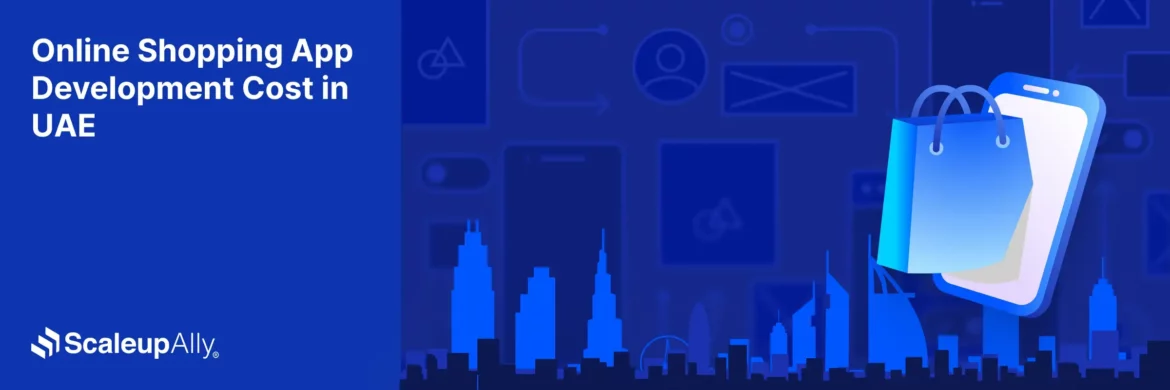
Top 12 Benefits of Custom Mobile App Development for Business
Suprabhat Sen | January 8, 2024 , 10 min read
Table Of Content
According to statista.com, mobile app usage has greatly increased worldwide over the past decade. By the end of 2020, there were about 3.5 billion smartphone users globally, and an estimated 1.4 billion smartphones were sold that year alone.
For smartphones to become useful, they need to be powered with apps. Mobile apps now play a dominant role in various aspects of our lives, such as shopping, health, entertainment, and more. We rely on them constantly for nearly every activity, significantly enhancing our daily lives.
However, despite the wide variety of mobile apps available in the market, there is still a gap between supply and demand. A lot of mobile apps are developed daily but most of them do not fully meet customer needs.
Custom mobile app development allows companies to create apps specifically tailored to their requirements and aligning with their vision and the needs of their customers or clients. Custom mobile app development is a strategic investment that has proven transformative for many enterprises.
This blog post explores the top 12 benefits of custom mobile app development, demonstrating why itt is essential for businesses, especially those in their early stages or looking to expand.
Key Takeaways
- Custom mobile app development provides tailored solutions that address specific business needs more effectively than generic apps.
- It enhances operational efficiency, customer experience, scalability, and long-term cost savings.
- Custom apps offer better integration with existing systems and allow for advanced security and control.
- Leading global brands like Starbucks, Uber, and Airbnb have leveraged custom apps to improve user engagement and drive growth.
- Choosing between custom and off-the-shelf apps depends on factors like budget, scalability, time-to-market, and business complexity.
What is custom mobile app development?
Custom mobile app development refers to creating mobile apps specifically tailored to meet the unique needs and requirements of a particular business or organization. Unlike off-the-shelf applications, which are pre-designed with a general audience in mind, custom apps are built from the ground up to address specific challenges, functionalities, and goals of a particular company.
Top 12 Benefits of Custom Mobile App Development
Custom mobile app development offers benefits beyond fulfilling a business’s current needs. It establishes a flexible system that addresses present requirements and prepares for future ones.
Let’s explore some of these benefits:
1. Tailored Solutions for Unique Needs
Off-the-shelf applications might offer generic functionalities but often fall short of meeting specific business requirements. Custom mobile app development ensures that every feature aligns precisely with the unique needs of your business, providing tailor-made solutions.
2. Efficiency and Productivity
Custom mobile apps are created to match how you work, making your processes smoother and minimizing delays. They work well with your current systems, handling tasks automatically and creating a work atmosphere where employees can concentrate on important tasks, increasing efficiency and productivity.
3. Improved Customer Experience
In custom mobile app development, the focus is on user-friendly design. You can provide a better, more personalized experience by tailoring an app to your specific audience. This doesn’t just make customers happier—it also helps them connect strongly with your brand.
4. Integration with Existing Systems
With the complexities of modern business infrastructure, it’s crucial to have applications that can easily work with existing systems. Custom apps are designed with this in mind, ensuring they can smoothly collaborate across different platforms and technologies.
5. Scalability to Accommodate Growth
One of the significant advantages of custom app development is scalability. As your business expands, so can your custom app. This scalability ensures that the application evolves with your business, accommodating increased data, users, and transactions without compromising performance.
6. Security Features
Security breaches are a constant threat. Custom apps provide an extra layer of security, as they are built with your specific security needs. This tailored approach significantly reduces the risk of unauthorized access and data breaches.
7. Cost-Efficiency in the Long Run
While the initial investment in custom app development might seem substantial, it is cost-effective in the long run. Off-the-shelf solutions often come with licensing fees and ongoing costs, whereas a custom app is a one-time investment that can adapt and grow with your business.
8. Competitive Edge in the Market
In a competitive market, it’s important to stand out. A personalized mobile app can make your business special by providing unique features that make you different from the competition. This uniqueness can be a powerful way to attract and keep customers.
9. Real-Time Analytics for Informed Decision-Making
Tailored applications frequently include sophisticated analysis features. This gives businesses access to up-to-the-minute information, which helps them make well-informed choices. For example, a retail company can monitor how customers use the app, which allows them to create more precise marketing plans.
10. Accessibility and Connectivity
Custom apps can use the latest technologies to enhance accessibility and connectivity. They can include using the app without an internet connection or location services to make it more flexible and connected.
11. Adaptability to Technological Advancements
Technology advances quickly. Customized applications are created to adjust to these changes smoothly. This flexibility guarantees that your business keeps up with the newest technological developments, providing an effective solution.
12. Increased Revenue Streams
Ultimately, the primary goal of any business is profitability. Custom mobile apps can open up new revenue streams. Whether through in-app purchases, subscription models, or improved customer engagement leading to increased sales, the potential for revenue growth is substantial.
Businesses That Have Benefited From Custom Mobile App Development
Several businesses across various industries have reaped significant benefits from custom mobile app development. Here are a few examples:
1. Starbucks
Starbucks created a mobile application that lets customers order and pay for their drinks ahead of time while earning loyalty points. This has resulted in more customer interaction, smoother business operations, and a boost in revenue.
2. Uber
Uber transformed people’s travel by introducing a custom app linking passengers with drivers. This app includes features like live tracking, easy payments, and a system for rating drivers, all of which have changed how people get around the world.
3. Domino’s Pizza
Domino’s custom mobile app allows users to order pizzas with just a few taps. The app’s tracking feature enables customers to monitor the pizza delivery in real-time, enhancing the overall customer experience.
4. Airbnb
Airbnb’s custom app transformed the travel and accommodation industry by allowing users to book unique lodging experiences. The app’s features, such as reviews and secure payment systems, have contributed to Airbnb’s global success.
5. Walmart
Walmart’s custom mobile app makes shopping easy for users. They browse products, buy them, and track their orders. The app also connects with in-store services to make shopping more convenient for customers.
6. Duolingo
Duolingo’s language learning app is a custom solution that offers personalized lessons, progress tracking, and interactive exercises. The app’s gamification elements make language learning engaging and effective.
7. Salesforce
Salesforce, a customer relationship management (CRM) leader, provides a custom mobile app that allows businesses to manage customer interactions, track leads, and access data on the go, enhancing sales and customer service processes.
These examples demonstrate the advantages of custom mobile app development in innovating within different industries, enhancing customer experiences, and staying ahead of the competition. Custom apps are a strategic investment for those looking to address specific business needs and create a unique value proposition for users.
Considerations for choosing between custom mobile app development and off-the-shelf solutions
Whether to develop a custom mobile app or use an off-the-shelf solution depends on what a business needs, how much it can invest, and its business plans. Custom apps are flexible but take longer to develop, while off-the-shelf apps are faster to develop but won’t be tailored to your specific needs.
Let’s explore this further with a table summarizing the key differences between custom mobile apps and off-the-shelf solutions.
| Aspect | Custom Mobile Apps | Off-the-shelf Apps |
| Business Specificity | If the business has unique processes or needs tailored functionalities. | When generic solutions align with the business’s requirements. |
| Scalability Needs | For businesses anticipating growth and requiring scalable solutions. | Suitable for smaller businesses with stable and predictable needs. |
| Budget Considerations | Initial investment may be higher, but long-term costs can be more predictable. | Generally, it has lower initial costs but may involve ongoing licensing fees. |
| Time-to-Market | Development may take longer due to the tailored nature of the solution. | Quick deployment as the solution is pre-built. |
| Flexibility and Control | Provides full control over features, design, and updates. | Limited customization options; the provider dictates updates. |
| Support and Maintenance | Often comes with ongoing support and updates from the development team. | Relies on the provider for support and updates. |
| Security Requirements | Allows for tailored security measures based on specific business needs. | The provider manages security; it may not be customizable. |
Conclusion
For startups, entrepreneurs, and product managers, the question isn’t if they should invest in creating custom mobile apps, instead the more important question is when they should build one.
The businesses are changing, and those who see the importance of tailored solutions will keep up and be prepared for future challenges and opportunities.
Going digital isn’t a choice but a must. Custom mobile app development becomes both a solution and a declaration of intent, innovation, and forward-thinking. It’s not just about making an app; it’s about building a business ready for the future.
If you’re looking for top-notch mobile app development services, ScaleupAlly is the company for you. Schedule a meeting with us today!
Frequently Asked Questions
Q: How long does developing a custom mobile app typically take?
The development timeline for a custom mobile app can vary widely based on factors such as complexity, features, and the development team’s size and expertise. Simple apps might take a few weeks, while more complex ones could extend to a few months or even a year.
Q: What is the cost range for developing a custom mobile app?
Custom app development costs vary widely based on features, complexity, and developer rates. Simple apps may cost tens of thousands, while complex, enterprise-level apps can reach several hundred thousand dollars or more.
Q: Can a custom app be developed for multiple platforms (iOS and Android)?
Custom apps can be developed for multiple platforms using cross-platform frameworks like React Native or Flutter. This approach ensures a consistent user experience across different devices.
Related Blogs

Top 20 Emerging Technologies of 2026
Discover the top 20 emerging technologies of 2026. Explore which innovations are driving change across healthcare, finance, manufacturing, and other crucial industries.
ScaleupAlly Team
Dec 16 ,
9 min read

Online Shopping App Development Cost in UAE | Pricing & Factors Explained
Understand UAE online shopping app development costs in 2025 with pricing ranges, influencing factors, hidden fees, timeframes, and expert savings tips.
Suprabhat Sen
Nov 29 ,
13 min read

Software Development Timeline: Phases, Duration & Estimation Guide
Understand the software development timeline with phase durations, key factors, hidden delays, and practical methods to estimate project time.
Suprabhat Sen
Nov 29 ,
16 min read


